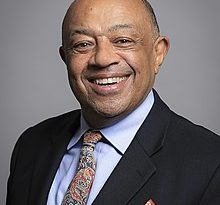Greg Mulholland – 2015 Parliamentary Question to the Department of Health
The below Parliamentary question was asked by Greg Mulholland on 2015-10-29.
To ask the Secretary of State for Health, what his Department’s definition is of an advanced nurse practitioner.
Ben Gummer
An advanced nurse practitioner is generally accepted to be a registered nurse who has acquired the expert knowledge base, complex decision-making skills and clinical competencies for expanded practice, the characteristics of which are shaped by the context of practice. A Master’s Degree is recommended for entry level to an Advanced Nurse Practitioner (ANPs) role. This role is not defined by the Nursing Midwifery Council or the Department.
Today ANPs work in a variety of health care settings and in a number of different roles, which range from a nurse consultant managing a specialist service in a hospital to being a nurse partner within a general practice.
Information on how many ANPs are employed by the National Health Service in each region of the United Kingdom in each of the last five years is not held by the Department.
We have made it clear that we are not planning to impose a ‘one size fits all model’ for our plan to provide a seven-day NHS. It will be for local commissioners and providers to decide how best to deliver seven day services in hospitals and for them to work with their Local Education and Training Boards to develop workforce plans to support this.
Although not explicitly mentioned in NHS England’s Five Year Forward view, ANPs are part of the solution to addressing the health and well-being gap; care and quality gap; and funding gap. For example, ANPs are involved in the new care models such as in Derbyshire. The Derbyshire Vanguard site will develop a prevention team made up of health and care professionals including general practitioners (GPs), ANPs, mental health nurses, extended care support and therapy support.
Seven day access does not mean that every GP must work every day or that all practices must open at evenings and weekends. Through schemes such as the Prime Minister’s GP Access Fund, practices are encouraged to collaborate together in delivering more convenient and accessible services for patients in the evenings and weekends through multiple methods including innovative use of technology, working together at scale, and better use of skill mix to both improve patient care and release GP capacity.
The recent independent evaluation of the first wave of the PM’s GP Access Fund reported that “evidence to date suggests that the strategy of making more use of nursing staff, particularly Advance Nurse Practitioners (ANPs), is resulting in benefits including released GP capacity…”


